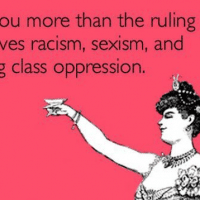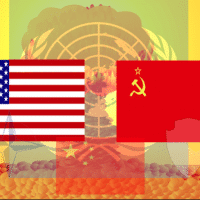-
UK police to arrest Julian Assange
Britain is doing Washington’s dirty work and given the heavily increased ‘political chatter’ on Assange’s fate–it is quite likely the British government is looking for public reaction to be muted enough to simply arrest him, go through the motions and send Assange to certain solitary confinement on death row.
-
U.S. manufacturing is far from healthy and the main reason appears to be globalization
Public awareness and acceptance of the negative consequences of corporate-driven globalization on U.S. workers has grown dramatically over the last years, aided in part by Donald Trump’s attacks on trade agreements like NAFTA.
-
Liberalism and empire
Paul Krugman had a column a few weeks ago called “Fall of the American Empire” about Donald Trump’s repudiation of “the values that actually made America great.” It is worth analyzing, because it is amusing and illustrative.
-
Cuban constitutions, yesterday and today
An eminent university professor reviews Cuba’s constitutional history and fundamental principles guiding the current process of reform.
-
Correcting the record: what is really happening in Nicaragua?
There is a great deal of false and inaccurate information about Nicaragua in the media. Even on the left, some have simply repeated the dubious claims of CNN and Nicaragua’s oligarchic media to support the removal of President Ortega. The narrative of nonviolent protesters versus anti-riot squads and pro-government paramilitaries has not been questioned by international media.
-
Russiagate is a ruling class diversion
So this is what we can look forward to in the long twilight of a shrinking U.S. empire: the shrieks of a delirious ruling class, concocting endless diversions from the central reality of late-stage capitalism’s inability to offer the people anything but widening wars and deepening austerity.
-
Against reductionism: Marxism and oppression
The relationship between oppression and class has always been an important question for Marxists and has been the subject of numerous debates between socialists and among the left more broadly.
-
The relationship between racism and capitalism
Revulsion is building towards the smokescreens of hypocrisy, racism, and nationalism barely masking capitalism’s ongoing failure to provide the jobs and incomes people need.
-
Trump kills science: nature strikes back
The Trump administration’s every move is marked with a strange creepiness as well as confusing messages that can only mean: They don’t get it. Their nefarious “destroy science” mentality promotes insane irreversible carbon emissions in good ole America, ultimately threatening the abilities of farmers to cope with ruinous global heat.
-
The League Against Imperialism (1927-37): An early attempt at global anti-colonial unity
The League Against Imperialism was launched in Brussels in 1927 with the goal of forging unity between colonized peoples and workers in the colonizing countries. Initiated by a wing of the Communist International, it was the first attempt to structure international anti-colonial unity. This brief presentation will focus on its origins and the causes of its decline.
-
The narrative is still Lula
He has been condemned to this cell in Curitiba by a judicial process that has his supporters outraged and his detractors gleeful. A week ago, judges went back and forth over whether he could be released while he appealed a verdict on a corruption case known as Operation Car Wash.
-
Τhe structural, fundamental factors pushing western capitalism into producing totalitarianism and war
Thank you very much for your kind invitation to participate in this very interesting, I would say even intriguing conference on Marx and Marxism, held in Beijing and coinciding with the celebration of the 200 years since the birth of Karl Merx, the thinker who has contributed as nobody else to demystifying our Social Being.
-
Craig Murray: Detente bad–Cold War good
Political memories are short, but just 15 years after Iraq was destroyed and the chain reaction sent most of the Arab world back to the dark ages, it is now “treason” to question the word of the Western intelligence agencies, which deliberately and knowingly produced a fabric of lies on Iraqi WMD to justify that destruction.
-
Ocasio-Cortez hedges criticisms of Israel– ‘I may not use the right words’
Rising Democratic star Alexandria Ocasio-Cortez, the congressperson-to-be for a district in the Bronx and Queens, famously tweeted “This is a massacre,” after Israel’s slaughter of 60 Gazans on May 14, and said Democrats must not be silent anymore about Israeli human rights violations, and opposed the embassy move.
-
Blood, breastmilk, and dirt: Silvia Federici and feminist materialism in international law (Part 2)
While a rich and engaging tradition of feminist approaches to international law has emerged over the past few decades, it has shown a marked tendency to sideline the long and multifaceted tradition of feminist historical-materialist thought.
-
Nicaragua is now the target
U.S. organizations like the National Endowment for Democracy and USAID have meddled in other countries’ affairs since their founding at the height of the Cold War.
-
All strikes of public sector workers are now political strikes
Arielle Concilio speaks with Marxist labor historian Nelson Lichtenstein on the lessons of the Teachers’ Spring and the signs of a resurgent labor movement in the U.S.
-
Blood, breastmilk, and dirt: Silvia Federici and feminist materialism in international law (Part 1)
In this post, Miriam Bak McKenna, argues that Federici’s work offers a rich resource for redressing the conspicuous absence of a gendered perspective within academic scholarship on materialist approaches to international law.
-
American companies pay for Trump’s trade war with China
Measures aimed at protecting US industry have affected small companies across sectors.
-
After Trump pushed NATO members to spend more, Lockheed doubles production as orders “explode”
The precipitous increase in Lockheed missile sales comes after the launch of Trump’s “Buy American” weapons-selling initiative to foreign allies, as well as his efforts to rewrite U.S. policy and regulations in order to make it easier to export more military-grade weapons.



















